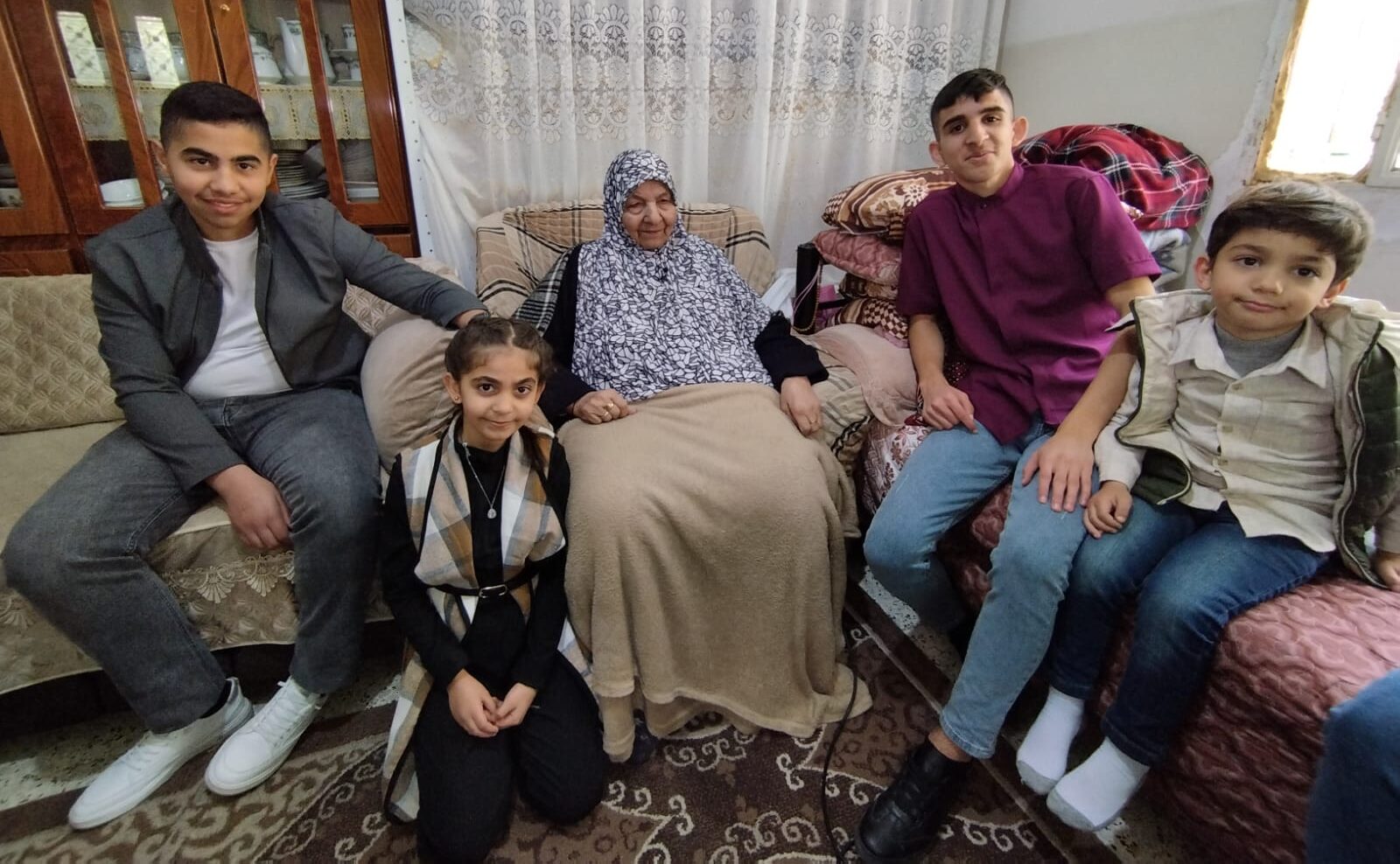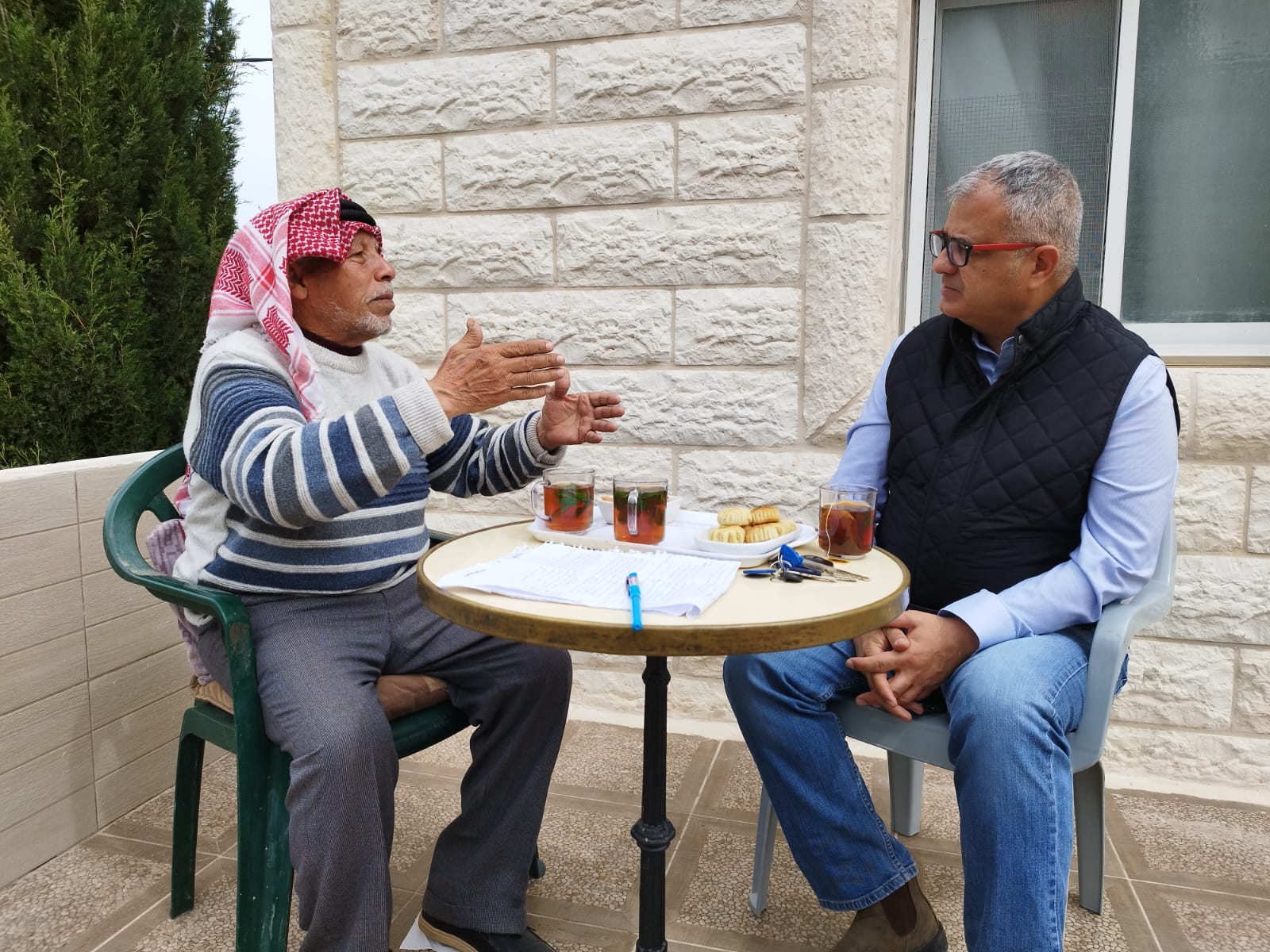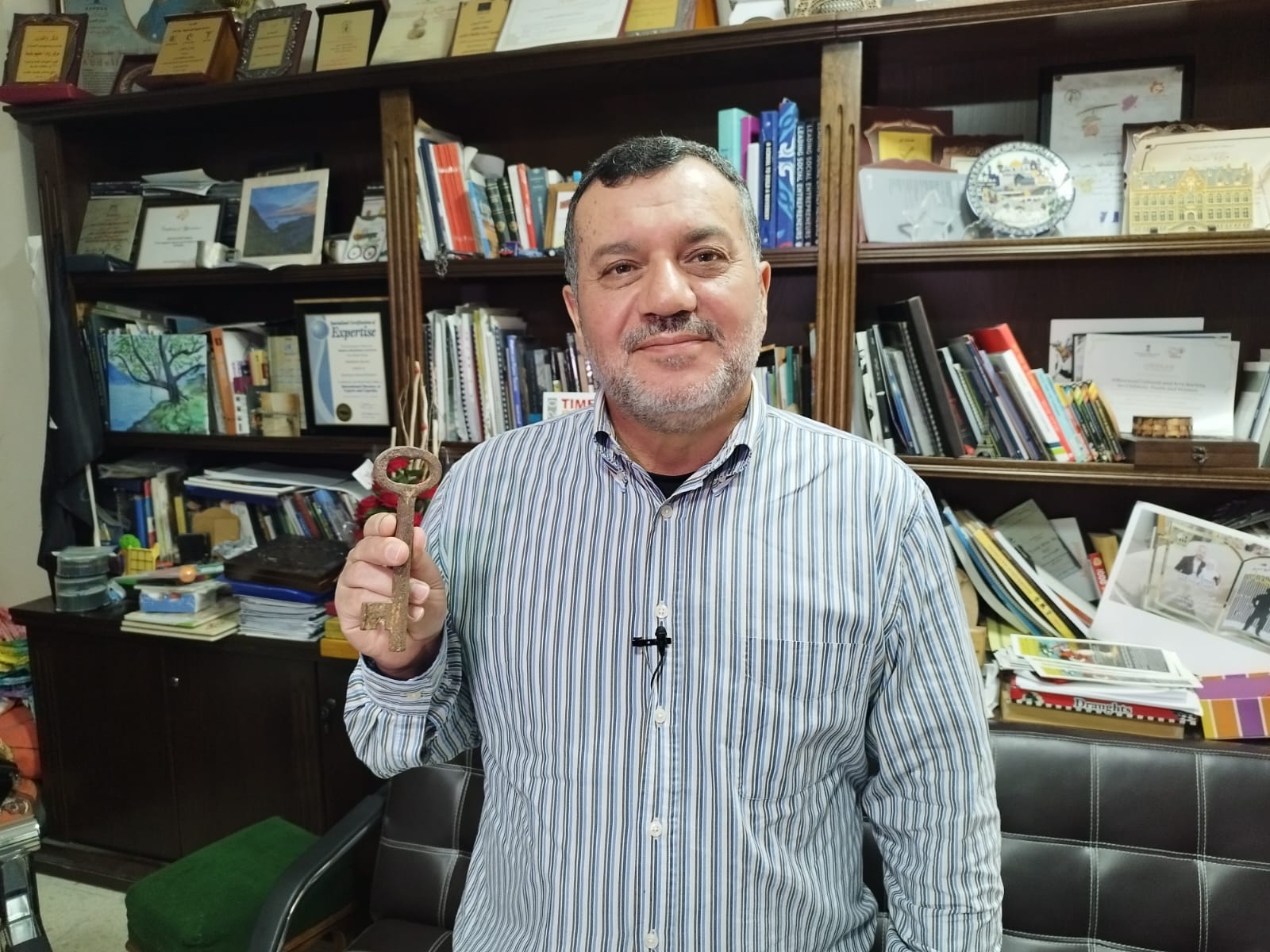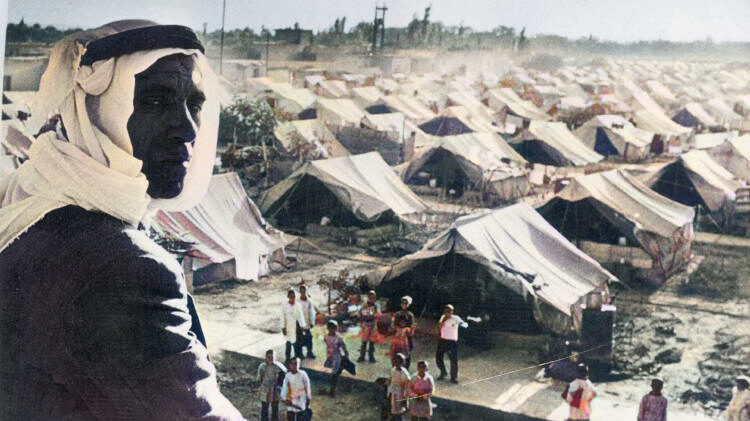75 Years Later, Palestinian Families Remember the Nakba, Hope for Return
Survivors and descendants of the 1948-1949 Palestinian exodus, known as the Nakba, share their stories and hopes for returning to their ancestral lands
Decades after Habsa Abu Srour’s family fled their village, the 86-year-old still remembers what happened.
“We were sleeping in the house, shooting started, and they announced that people from other villages like Deir Yassin and Lifta had fled.”
She recalls when her family fled their home village Bayt Nattif.

Habsa Abu Srour with some of her grandchildren at her house in Aida refugee camp, April 23, 2023. (Mohammad Al-Kassim/The Media Line)
What followed became known by Palestinians as the Nakba, Arabic for “catastrophe.” It refers to the exodus of nearly 750,000 Palestinians who were expelled by armed Zionist groups or Israeli soldiers or forced to flee from their homes and villages during the 1948-1949 war that saw Israel emerge as an independent state.
“My father gave me a bowl full of ghee to carry and a bomb fell near me. We ran and I sweated and fell and the pot of ghee broke, we were scared we were going to die,” says Abu Srour.
Her village, Bayt Nattif, was destroyed by Israeli forces, and what remains are piles of stones.
In the end, they ran for years.
When Abu Srour and her family fled from their village … they came to Ayada camp in the West Bank. They thought their stay would last days or maybe weeks, and that they would eventually go back. But like hundreds of thousands of Palestinians, Abu Srour never came back or was allowed to return.
She is 87 years old today and hopes that one day, if not she, her grandchildren will be allowed to return.
I hope to return. I pray to God that I die in my village. If you tell me I’m allowed to go back, I’ll go on foot. Our land is dear to us.
“I hope to return. I pray to God that I die in my village. If you tell me I’m allowed to go back, I’ll go on foot. Our land is dear to us,” she says.
Khader Mohammad Rabah spent the rest of his life as a refugee.
He was 5 at the time of the Nakba. His family consisted of six boys and three girls with his parents.
“We took sheep and two cows and a few beddings and lived in a cave in the mountain,” he says.

Khader Mohammad Rabah speaking with Mohammad Al-Kassim at his house in Walajeh village near Bethlehem, April 23, 2023. (Noor Khatib/The Media Line)
His father didn’t move his family far from their village; he had hoped they would return soon.
“We were displaced but were promised that we would return after a month or two to our village. Decades have passed and we have not returned home,” says Rabah.
Rabah still dreams of returning and expresses that by writing poetry.
“I still hope to return. We hope to go back and rebuild our village again,” says Rabah.
Abdelfattah Abusrour is a descendant of survivors of the Nakba.
“I was the first in 11 generations in my family to be born in a refugee camp,” says Abusrour.
He is one of 5.9 million Palestinian refugees living in the occupied West Bank, the Gaza Strip, Jordan, Lebanon, and Syria according to the United Nations.
Abusrour, 59 years old, holds a doctorate from a French university in biomedical engineering.
His father hails from Bayt Nattif, and his mother from Az-Zakariyya, 5 kilometers apart.
Both were destroyed and run over by Israeli forces.
Abusrour says his parents hoped to be buried in their villages. But, he says, “unfortunately both my parents died in the camp.”
“Part of my family ended up resettling in the West Bank, others in Gaza, Lebanon, Syria Jordan, Egypt, and the US and Canada,” says Abusrour.
He still holds on to the key to his family’s house.

Abdelfattah Abusrour holds a key to his family house in Bayt Nattif, April 23, 2023. (Mohammad Al-Kassim/The Media Line)
“The key to my parents’ house means that there was a house and a big house with multiple rooms. A space where my family lived; where my elder brothers and sisters were born. The key is a remembrance of this tragedy.”
I’m confident that justice will prevail. And we will return. We cannot forget.
“I’m confident that justice will prevail. And we will return. We cannot forget,” says Abusrour.
The memory of the Nakba, which is commemorated on May 15, has become a rallying point for the Palestinian quest for statehood.


